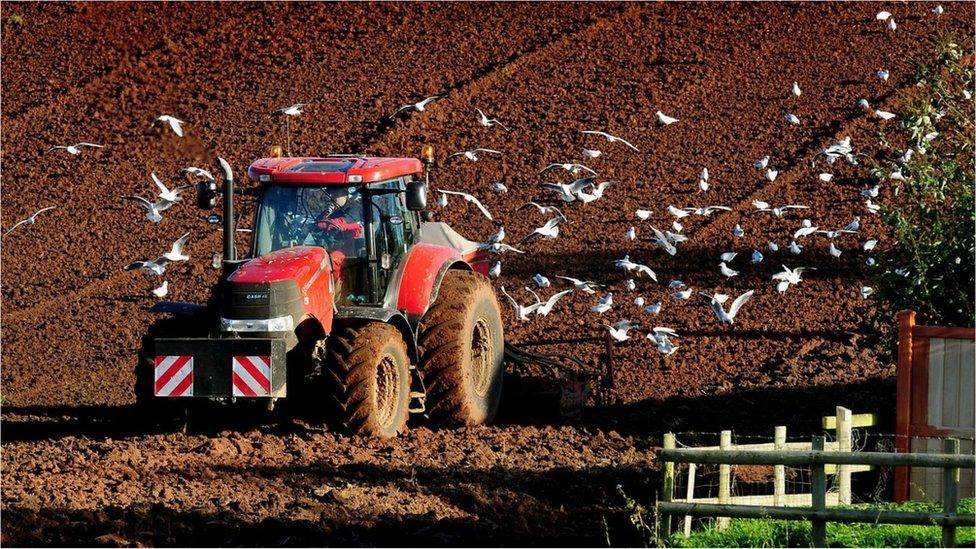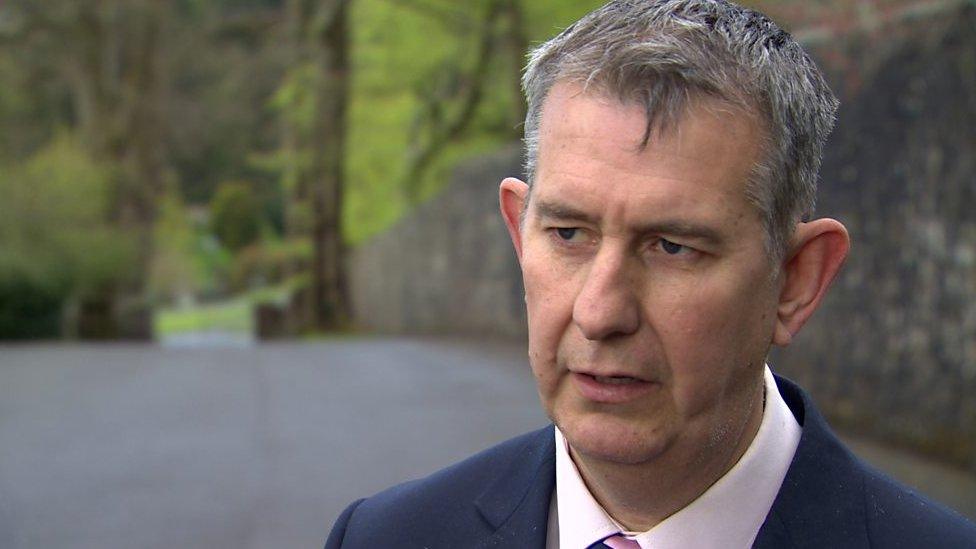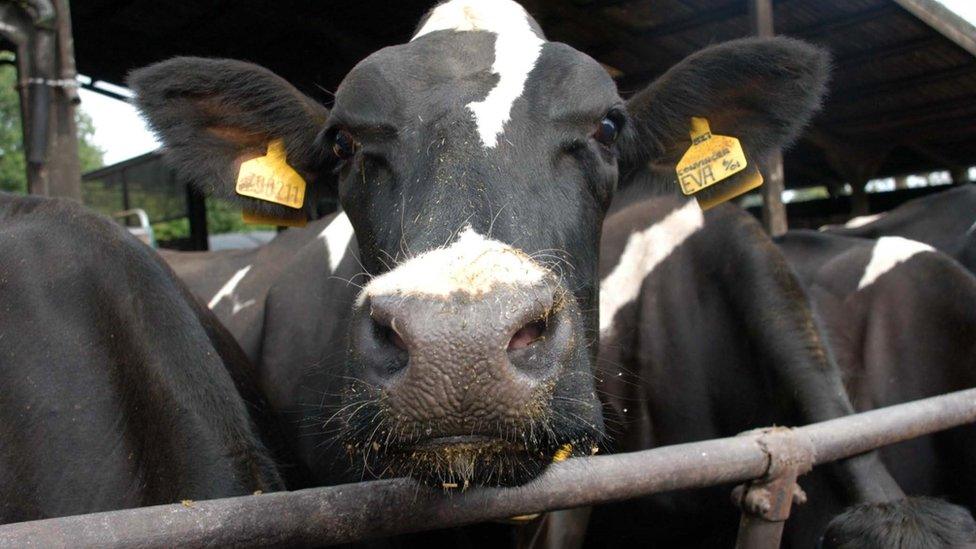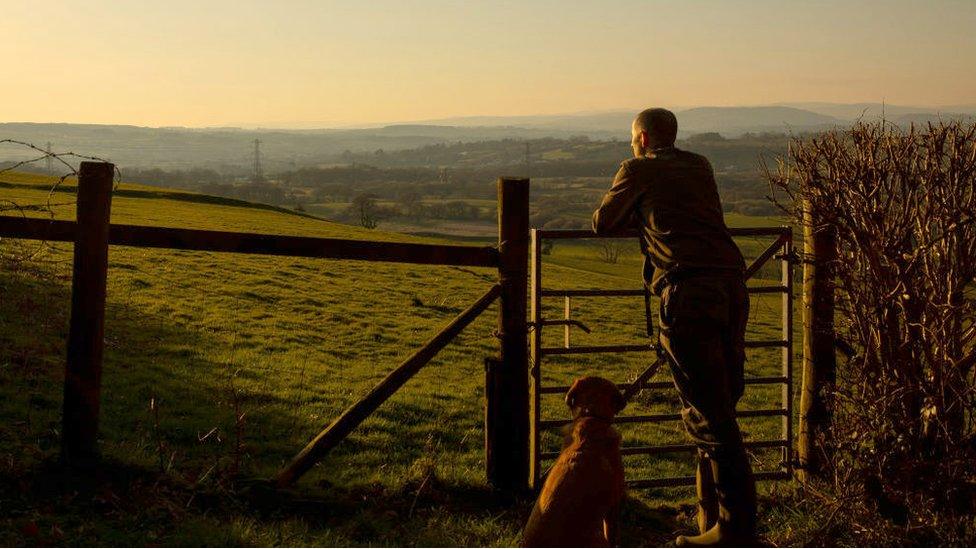Brexit: NI rural funding could be reduced by £34m
- Published

Northern Ireland's rural communities could be more than £30m worse off if a funding row with Westminster is not resolved.
It could affect a range of projects that create jobs, improve the environment and help with social cohesion.
It relates to budget commitments made by Treasury to the authorities in Belfast, Cardiff and Edinburgh.
They have now been told the money promised may be reduced.
In Northern Ireland that will potentially mean a loss of £34m over the next three years, while for Wales and Scotland the reduction will be much greater.
Scottish cabinet minister Fergus Ewing MSP said it looked as if farmers and rural communities were to be "financially penalised by Brexit and we are not prepared to accept that".
'Disrespect'
Rural affairs ministers from the devolved assemblies, including Edwin Poots, have written to Defra Secretary George Eustice to protest the decision.
In a strongly worded letter they said the decision is a "flawed" one and that Treasury has broken its word.
"The disrespect this shows to the devolution settlements and the reneging on public commitment is not acceptable," the letter reads.
They said there had been no meaningful dialogue over funding proposals that would have ensured "none of us would be left in a position where we lost out as a result of leaving the EU".
The controversy is due to complex rules on funding for what was once EU money provided under the Common Agriculture Policy.
The rules allowed a degree of flexibility around spending periods.
So while the latest money was committed between 2014 and 2020, the authorities could take until 2023 to spend it.
Now the devolved authorities have been told their Westminster cash will be reduced by the amount of EU money they have left to spend between now and 2023.

Edwin Poots called for the funding to be restored
For Northern Ireland that means a shortfall of £14m in 2021/22; £17m in 2022/23; and £3m in 2023/24.
The issue may be addressed in the government's Spending Review, but there is no guarantee the position will change.
"It is simply intolerable to even contemplate a future where the devolved administrations are at a disadvantage," Mr Poots said.
"We are now in the final hours before the spending review is announced and the clock is ticking - loudly in our ears.
"The UK Government must recognise its responsibility to engage in a meaningful way with us and to ensure that funding is allocated, not just in a way that is fair and right, but in the way that the Government committed to doing so."
- Published25 September 2020

- Published15 May 2020
